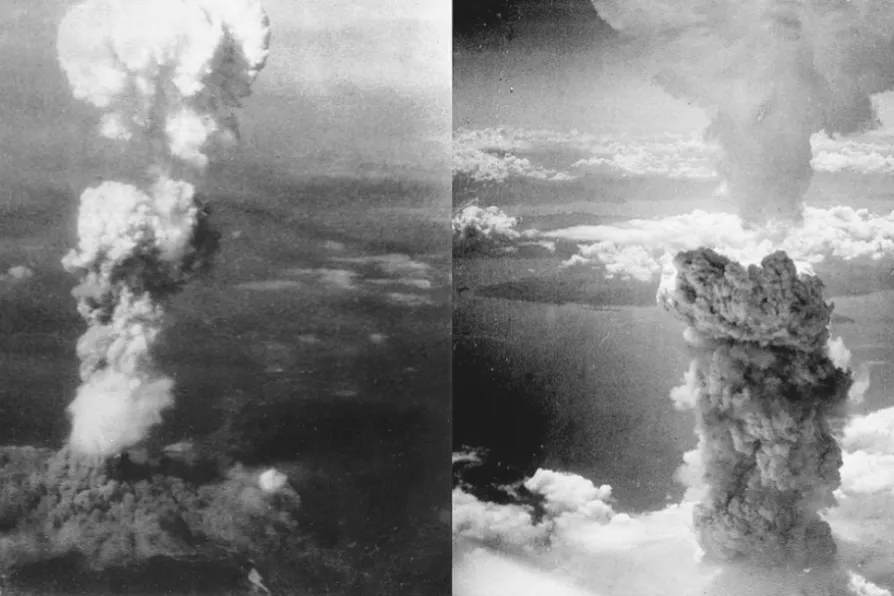RAMZY BAROUD offers six reasons why Netanyahu is prolonging conflict in the Middle East

 Little Boy explodes over Hiroshima, Japan, August 6 1945 (left); Fat Man explodes over Nagasaki, Japan, August 9 1945 (right)
Little Boy explodes over Hiroshima, Japan, August 6 1945 (left); Fat Man explodes over Nagasaki, Japan, August 9 1945 (right)
ON AUGUST 6 1945 an atom bomb was dropped on Hiroshima, Japan, and a second one on Nagasaki three days later.
The date is etched in history as an act of war so horrific that humanity hopes it will never be repeated.
Destruction of the two Japanese cities was almost complete along with the deaths of more than 100,000 people.

As we mark the anniversaries of the Hiroshima and Nagasaki bombings, JOHN WIGHT reflects on the enormity of the US decision to drop the atom bombs

Today Coventry’s Hiroshima Day Remembrance marks 80 years since the atomic bomb was dropped in 1945. Statement from Coventry Lord Mayor’s Committee of Peace and Reconciliation

JEREMY CORBYN reports from Hiroshima where he represented CND at the 80th anniversary of the bombing of the city by the US

Ageing survivors of the Hiroshima and Nagasaki atomic bombings are increasingly frustrated by growing nuclear threats by global leaders










